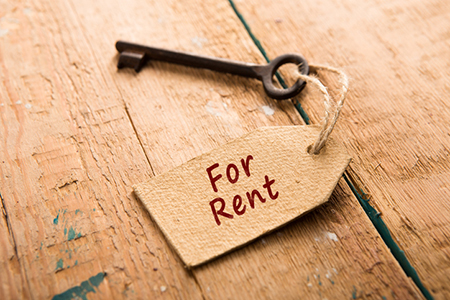Editor’s Note: This was originally published on RISMedia’s blog, Housecall. See what else is cookin’ now at blog.rismedia.com:
- 10 Easy Home Improvements to Make on your Fixer Upper
- Brighten Up Your Kid’s Bedroom with ‘Beauty and the Beast’-Inspired Decor
- Mortgage Credit’s More Crunched Than in 2001—Here’s Why
If you own some property that you are not actively living in, you might be thinking about renting the property out and becoming a landlord. Renting usable property is a great way to make some extra money, but if not done carefully, it can turn into a disaster. Here is a list of some of the most important things to learn before taking the plunge.
Study Local Laws
Since shelter is a basic human need, a large body of legal rules and regulations apply to the process. Rental laws vary a great deal from state to state, so you’ll need to find a good resource for researching these laws, unless you are already a lawyer yourself. While looking around online is a good start, you’ll probably also need to consult a legal professional, or at least some books on the subject. Your local library is an excellent resource to find any of the information without spending an arm and a leg.
Set Up Your Maintenance Team
As the rental owner, for the most part, you will be legally liable for keeping up the property in terms of basic maintenance. Between electrical, gas, water, HVAC, and other systems, a home is a bundle of potential maintenance issues waiting to explode in your face. Hiring good people to keep everything working properly is important to staying ahead of the curve, especially if you are renting out multiple properties; the more locations you are leasing, the more maintenance hours you will log. Of course, sometimes the problems will go beyond what a maintenance team can cover. For those cases, you’ll want a working relationship with a good local contractor.
Get the Proper Insurance
However many steps you go through in your tenant screening process, the fact remains that problems can and will occur. Whether from unruly and careless tenants, freak accidents that cause serious damage, or simply from regular wear and tear, your property is at risk when you rent it out. You can protect your investment by making sure you are covered by the best home insurance possible, so you can recover against any losses. Protect your home further with a home warranty that can keep your pricey appliances covered in case of expensive damages.
Set Up Your Lease Properly
With all the knowledge you’ve acquired in the previous steps, you should be well prepared to put together a strong lease at this point. This document is hugely important to beginning your time as a landlord right, since it outlines the rights and responsibilities of both you and your tenant. As such, it protects both people in the relationship from problems, intentional and otherwise. You’ll definitely want to get a lawyer involved in at least one draft of the document, and ask him or her how to make sure you aren’t put in a dubious legal position.
Whether you are renting out a single property or operating multiple rental properties, the basic requirements for success are fundamentally the same. With a little work, you can turn that property into money in your pocket.
For the latest real estate news and trends, bookmark RISMedia.com.











